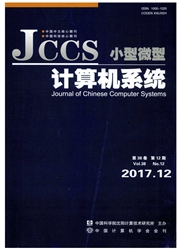

 中文摘要:
中文摘要:
安全处理器(Security Processor,SP)是处理器的一个重要分支,体系结构对其性能有重要的影响.介绍了各种不同的安全处理器的体系结构以及它们的优缺点,并根据它们各自的特点进一步介绍了它们的性能优化方法.通过对比研究发现,随着集成电路集成度提高,在安全处理器功耗水平和芯片面积维持较低增长的情况下,其可以逐步实现较以前更多、更难的功能,同时,其加解密速度、灵活性、可升级性等性能都获得较大的提升.另外,通过本文介绍,可以清晰地了解不同种类安全处理器的异同点和优缺点以及安全处理器发展的脉络,指导更好地设计和使用安全处理器.
 英文摘要:
英文摘要:
Security processor is an important branch of the processor,architecture of which has important implications to its performance.This article describes a variety of architectures of different security processors.In addition,it illustrates their advantages and disadvantages and gives further information on the performance of their optimization in accordance with their characteristics.From the comparative study,we can find that the improvement of integration level makes security processors achieve more difficult functions.At the same time,security processors' power consumption and chip area can be maintained at lower growth level,but the speed of Encrypt/Decrypt,flexibility,scalability and other performance have been larger enhanced.In addition,through this paper,we can make a clear understanding of different types of similarities and differences between the security processors and security processors and the advantages and disadvantages of the development context,which will guide the design and use of security processors.
 同期刊论文项目
同期刊论文项目
 同项目期刊论文
同项目期刊论文
 A Loss Inference Algorithm for Wireless Sensor Networks to Improve Data Reliability of Digital Ecosy
A Loss Inference Algorithm for Wireless Sensor Networks to Improve Data Reliability of Digital Ecosy 期刊信息
期刊信息
